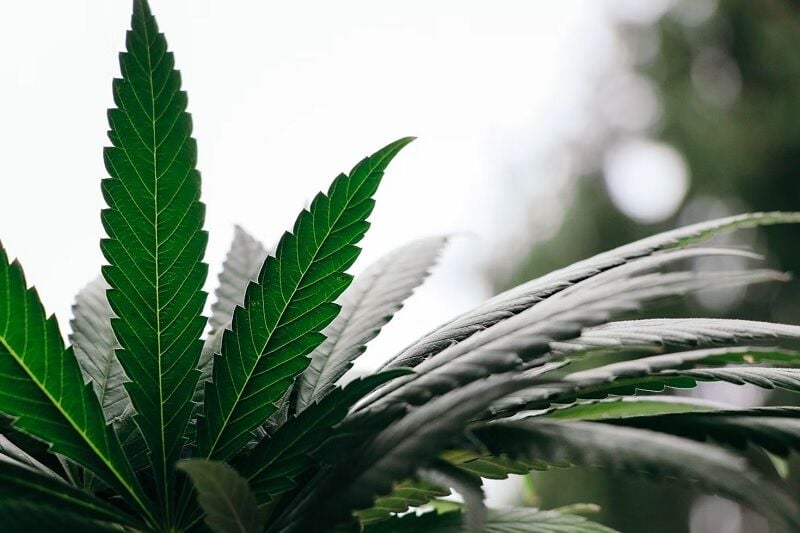Is cannabis a secret to ease ageing pain?

Understanding the effects of cannabis on the ageing brain is more important now than ever. Despite limited and inconsistent research directly linking cannabis use to changes in the ageing brain, there’s evidence suggesting long-term use could impact brain functions similarly affected by ageing. Let’s unravel the complexities of how cannabis and ageing intersect, focusing on the potential implications for memory and executive functioning.
The science of cannabis: Can it really slow ageing?
When you dive into the world of cannabis and its effects on ageing, you’ll uncover a complex array of studies, theories, and potential benefits that seem almost too good to be true. With the ongoing legalisation and destigmatisation of cannabis, more research is becoming available, offering us a peek into how this plant might impact our golden years.
Let’s break down the specifics. Cannabis strains contains compounds that have been found to safeguard neurons in the brain. This action is vital for maintaining cognitive function as you age. Moreover, the antioxidant properties of cannabis can combat oxidative stress, a key factor in ageing. These findings suggest that cannabis might not just be about experiencing a high—it could also hold the key to enhancing your golden years.
Interestingly, research into how cannabis affects cognitive function in older adults is gaining momentum. Initial studies indicate a positive correlation between moderate cannabis usage and improved cognitive performance in the ageing population. However, it’s important to proceed with caution.
However, the relationship between cannabis and ageing is not one-size-fits-all. Variations in individual responses stem from a multitude of factors, including genetics, lifestyle choices, and existing health conditions. This complexity underscores the necessity for personalized approaches when considering cannabis for ageing-related concerns.
| Aspect | Influence |
|---|---|
| Neuroprotective Properties | May protect brain cells |
| Antioxidant Properties | Could mitigate oxidative stress |
| Cognitive Performance | Potential improvement in older adults |
The journey to fully comprehend the impact of cannabis on ageing is ongoing. The intrigue lies in the delicate balance and the precise conditions under which cannabis can be beneficial. As researchers continue to peel back the layers, the potential for cannabis to positively influence the ageing process becomes more evident, offering a glimpse into how this ancient plant could contribute to improved quality of life in your later years.
Cannabis and longevity: Myth or reality?

Recent research has shed light on the potential benefits of moderate cannabis use, especially regarding cognitive performance in ageing individuals. Moderate use is key here. It’s not only about how much you consume but also how often. The relationship between cannabis, cognitive performance, and ageing involves careful consideration of both dosage and frequency.
However, diving deeper into this subject reveals a complex landscape. Not all studies are conclusive, and the benefits of cannabis on ageing and cognitive performance can vary widely from one individual to another. Factors such as genetics, lifestyle, and the presence of other health conditions play a significant role in determining whether cannabis might be beneficial or detrimental in the context of ageing.
It’s a field of study still in its formative years. The ongoing quest to understand how cannabis impacts the ageing process shows promise but also highlights the need for more comprehensive research. As we continue to explore, the hope is that further insights will emerge, offering a clearer picture of cannabis’s role in enhancing the quality of life in later years.
Benefits and risks of cannabis use in older people
Cannabis possesses natural compounds that offer several health benefits, including reducing inflammation and managing pain. As you age, these properties may become increasingly relevant. Chronic pain, a common concern among the older people, often responds well to cannabis treatment, offering a semblance of relief where traditional medications fall short. Moreover, the antioxidant features of cannabis contribute to combating oxidative stress, a key player in the ageing process. This mechanism may slow down cellular damage, potentially leading to a more graceful ageing experience.
However, the journey doesn’t stop at benefits. Risks accompany cannabis use, especially in the older people. The psychoactive effects of THC, a prominent compound in cannabis, can vary greatly among individuals, particularly affecting those with a lower tolerance or pre-existing mental health conditions. Cognitive functions, though sometimes improved through moderate use, could also face impairment if consumption isn’t carefully managed.
Finding the right dosage becomes a central theme in safely integrating cannabis into an ageing-friendly lifestyle. Too little may not provide the desired benefits, while too much could lead to adverse effects, including increased anxiety or cognitive disorientation.
Moreover, interactions with other medications must be considered. As older adults often take various prescriptions for different health issues, ensuring that cannabis does not negatively interact with these is paramount.
In essence, your journey with cannabis as you navigate the complexities of ageing involves a delicate balance. Educating yourself about both the potential uplifts and the drawbacks will equip you with the knowledge to make informed decisions. Remember, moderation and careful monitoring are key to harnessing the potential of cannabis in ageing, allowing for an enhanced quality of life without compromising health.
Role of cannabis in preventing age-related diseases

Cannabis acts on the body’s endocannabinoid system (ECS), a critical regulator of balance and health. This interaction helps modulate inflammation, a root cause of many age-related diseases. By reducing inflammation, cannabis could potentially slow the progression of diseases like heart disease, Alzheimer’s, and osteoporosis.
Moreover, Cannabis Aids in Neuroprotection. Research suggests that cannabinoids have neuroprotective properties, safeguarding brain cells from damage. This is particularly important as you age, safeguarding against disorders such as dementia and Parkinson’s disease. By maintaining brain health, cannabis supports cognitive function and memory in your later years.
Pain management is another area where cannabis shines. Ageing often comes with increased incidents of chronic pain, stemming from conditions like arthritis. Cannabis’s analgesic effects provide relief without the side effects commonly associated with traditional pain medication.
Your health history and current medications play a crucial role in determining how your body responds. It’s essential to prioritise quality and clarity when choosing cannabis products. Remember, consulting with healthcare professionals ensures you receive personalised advice tailored to your needs. Starting with low doses and adjusting slowly is key to finding the right balance for pain relief without unwanted side effects. Cannabis should be one part of a holistic approach to managing your health as you age. By staying informed and adaptable to new research, you’re taking a proactive step towards embracing a more natural method of addressing the challenges of ageing.
Considering the above facts in check, You can also explore myths and realities about medical cannabis, It’s a topic that’s been shrouded in controversy, despite its centuries-old history of medicinal use. You’re likely familiar with some of the tales spun around its effects and legality, but it’s time to separate fact from fiction.
Parts of this article, including images, may have been generated using AI tools before an editor reviewed it.
Latest Thailand News
Follow The Thaiger on Google News:


























